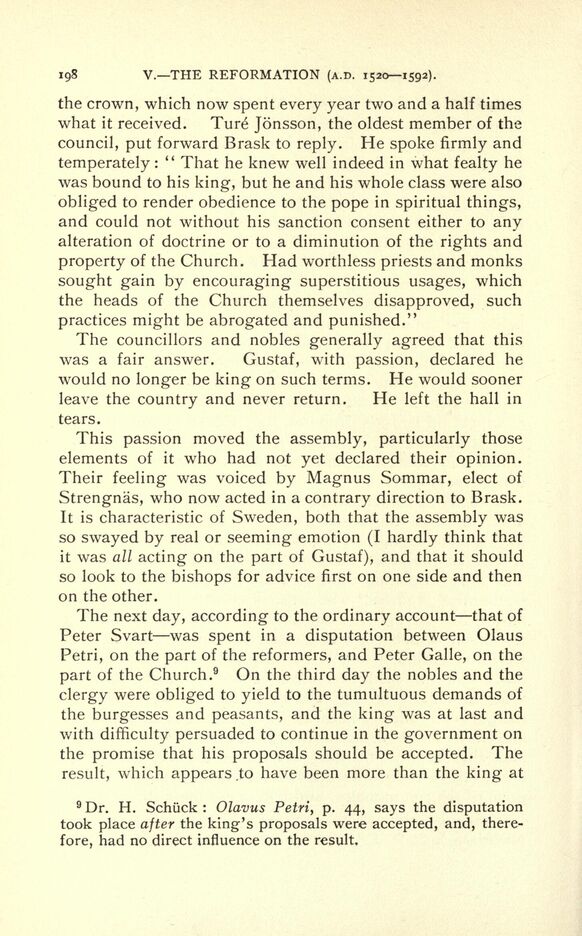
Full resolution (JPEG) - On this page / på denna sida - V. The Swedish Reformation under Gustaf Vasa and his sons Eric and John (1520—1592 A.D.)

<< prev. page << föreg. sida << >> nästa sida >> next page >>
Below is the raw OCR text
from the above scanned image.
Do you see an error? Proofread the page now!
Här nedan syns maskintolkade texten från faksimilbilden ovan.
Ser du något fel? Korrekturläs sidan nu!
This page has never been proofread. / Denna sida har aldrig korrekturlästs.
igS V. THE REFORMATION (A.D. 15201592).
the crown, which now spent every year two and a half times
what it received. Ture Jonsson, the oldest member of the
council, put forward Brask to reply. He spoke firmly and
temperately :
"
That he knew well indeed in what fealty he
was bound to his king, but he and his whole class were also
obliged to render obedience to the pope in spiritual things,
and could not without his sanction consent either to any
alteration of doctrine or to a diminution of the rights and
property of the Church. Had worthless priests and monks
sought gain by encouraging superstitious usages, which
the heads of the Church themselves disapproved, such
practices might be abrogated and punished."
The councillors and nobles generally agreed that this
was a fair answer. Gustaf, with passion, declared he
would no longer be king on such terms. He would sooner
leave the country and never return. He left the hall in
tears.
This passion moved the assembly, particularly those
elements of it who had not yet declared their opinion.
Their feeling was voiced by Magnus Sommar, elect of
Strengnas, who now acted in a contrary direction to Brask.
It is characteristic of Sweden, both that the assembly was
so swayed by real or seeming emotion (I hardly think that
it was all acting on the part of Gustaf), and that it should
so look to the bishops for advice first on one side and then
on the other.
The next day, according to the ordinary account that of
Peter Svart was spent in a disputation between Olaus
Petri, on the part of the reformers, and Peter Galle, on the
part of the Church.9
On the third day the nobles and the
clergy were obliged to yield to the tumultuous demands of
the burgesses and peasants, and the king was at last and
with difficulty persuaded to continue in the government on
the promise that his proposals should be accepted. The
result, which appears .to have been more than the king at
9
Dr. H. Schiick : Olavus Petri, p. 44, says the disputation
took place after the king s proposals were accepted, and, there
fore, had no direct influence on the result.
<< prev. page << föreg. sida << >> nästa sida >> next page >>